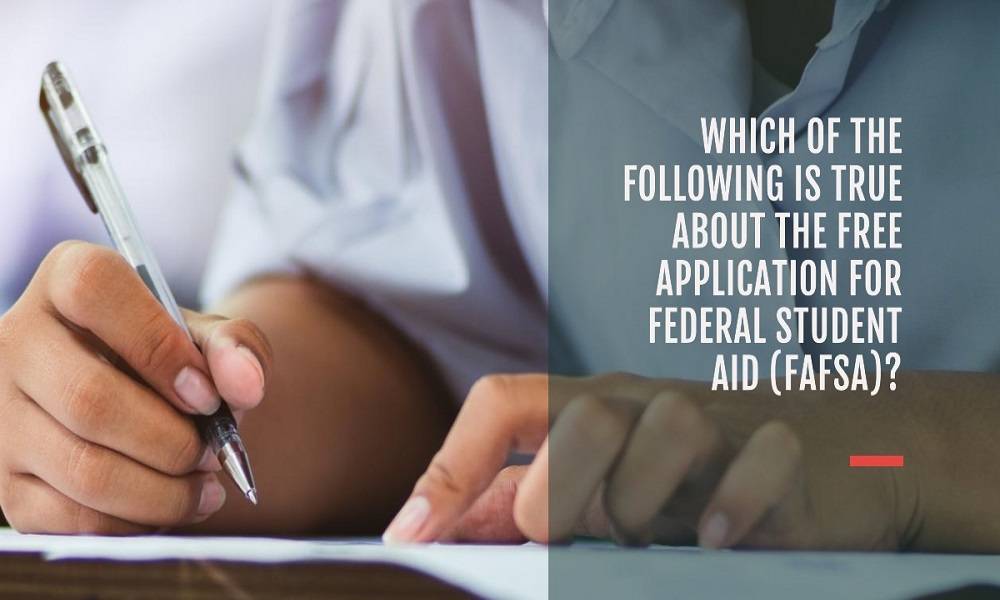Which of the Following is True About the Free Application for Federal Student Aid (FAFSA)?

The Free Application for Federal Student Aid (FAFSA) is a crucial tool that helps millions of students obtain financial aid to pursue their higher education dreams. Misconceptions about the FAFSA can deter students from taking full advantage of the financial aid opportunities it provides. This article will aim to clarify some of the most common statements about FAFSA and verify their truthfulness.
FAFSA is only for students with good grades
False. The FAFSA is not a scholarship application, and the federal government doesn’t have a minimum grade requirement to qualify for aid. However, students receiving financial aid need to make satisfactory academic progress, as defined by their school, to continue receiving federal aid.
You only need to complete the FAFSA once
False. You need to complete the FAFSA for each academic year that you’re seeking financial aid. The FAFSA opens on October 1 for the next academic year, and it’s best to complete it as soon as possible because some types of aid are first-come, first-served.
The FAFSA is only for low-income students
False. While it’s true that the FAFSA is used to apply for need-based aid, such as Pell Grants and subsidized student loans, it’s also used to apply for non-need-based aid. This can include unsubsidized student loans, Parent PLUS loans, and some types of state aid. Therefore, it’s beneficial for students of all income levels to complete the FAFSA.
The FAFSA is difficult and time-consuming to complete
Partially True. The FAFSA does require detailed financial information, which can make the process seem complex. However, the online FAFSA form has built-in help to assist you through the process, and many schools and organizations offer FAFSA completion workshops. It takes most people less than an hour to complete.
The FAFSA requires you to provide your parents’ financial information
True. The FAFSA does require parental financial information for dependent students, which generally includes students under 24, unmarried, and without dependents of their own. However, there are exceptions for students who are homeless, in foster care, or in other specific situations.
The FAFSA determines your eligibility for federal aid, as well as state and school aid
True. While the FAFSA is known for determining eligibility for federal aid, many states and colleges also use the FAFSA to award their own financial aid. Some even require the FAFSA for merit-based scholarships.
In conclusion, the FAFSA is a critical tool in securing financial aid for college, regardless of your financial situation or academic standing. It’s crucial to dispel myths and understand the facts to take full advantage of the financial aid opportunities provided by the FAFSA. If you need help completing the FAFSA, don’t hesitate to reach out to your school’s financial aid office or a trusted advisor.










